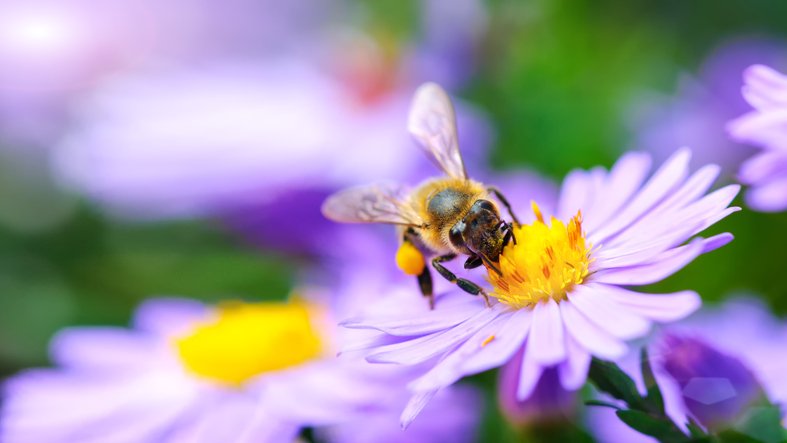Why go organic?
Organic takes a ‘whole system’ approach to farming and food production. This means farming in a way that aims to support our whole food system, from soils and farm animals to the health of people, nature and the planet.
Around the world, we are losing soil much faster than it’s formed – alarmingly between 10 and 40 times faster.
One UN official stated that we may have fewer than 60 harvests left. 95% of our food production relies on soil, so it has never been more crucial to farm in a way that protects and preserves the soil.
Instead of using artificial fertilisers, organic farmers nourish their soils, keep them fertile and prevent erosion using manure, compost, ‘cover crops’ and crop rotations.
As a result, organic farms are havens for wildlife; According to the Soil Association, plant, insect and bird life is on average 50% more abundant on organic farms, which are home to around 30% more species of wildlife.
Bee-friendly farming
There are up to seven times more wild bees in organic grain fields. For every 10% increase in bee-friendly habitats like those found on organic farms, bee numbers and diversity increase by over a third. A small increase in bee-friendly organic habitat would boost bee numbers by a third.
There are around 75% more wild bees on organic farms, and organic farming can improve the numbers of bees found in habitats surrounding the farm as well.
If pesticides were substituted for more sustainable farming practices (like organic), this could slow or reverse the decline in insects.
Animal welfare
Animal welfare is one of the most important aspects of organic farming. Organic standards insist that animals are given plenty of space and fresh air, and that they are raised in conditions that suit their natural behaviours.
Smaller flocks and herds and greater access to the outdoors mean organic animals don’t have to be routinely treated with antibiotics and wormers.
Mutilations like beak-trimming to prevent the aggressive side-effects of stress are also not allowed (or needed) on organic farms.
Organic farmers are encouraged to close the loop on their farms by making use of what’s to hand and limiting the use of imported resources.
Nature has the answer to restoring our planet – and organic works with nature to protect our soil, our wildlife and our world.
 Play Video about This Rock Might Just Save The World
Play Video about This Rock Might Just Save The World Play Video about Play 2 hours of rock
Play Video about Play 2 hours of rock Play Video about Play 2 hours of brook
Play Video about Play 2 hours of brook Play Video about Play 2 hours of sheep
Play Video about Play 2 hours of sheep











































